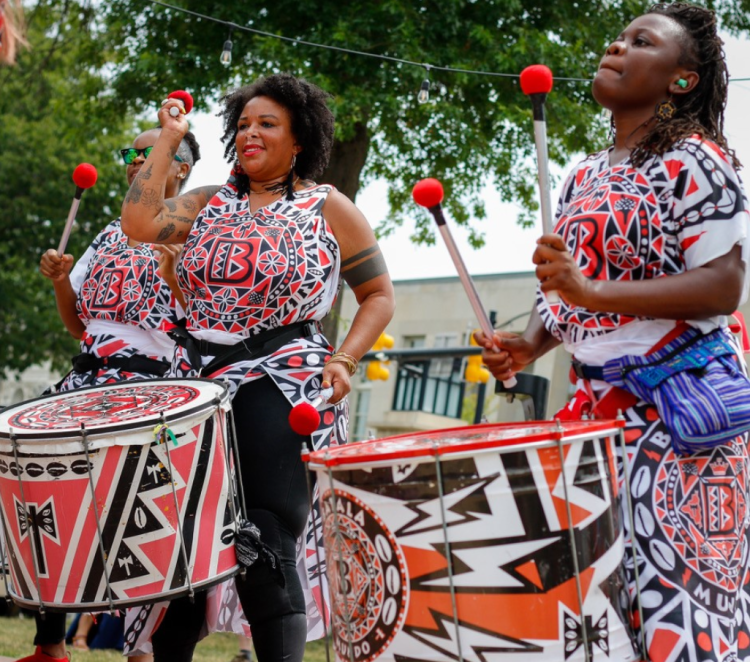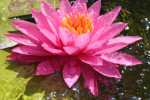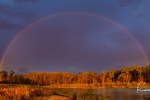There are two things our generation has learned to do well: We work hard and we play hard. One thing we may not do with as much consciousness, as keen an awareness, it seems, is to celebrate just as intently as we work, just as well as we play. When we play in this part of the world, we play to win. We give it everything we have: We prepare and practice, we work out and scrimmage, we cherish our injuries with pride, we paste trophies and ribbons on our walls for all the world to see.
Celebration is something else completely. Celebrations are the firework moments of life that bring with them a sense of what it means to have become another part of ourselves. Celebration brings sparkle to a life too often lived in dull colors, in twilight, in darkness.
Most important of all, perhaps, there is as much a spiritual component to celebration as there may be a social one. In feudal times, the celebration of feast days—celebrations of the great moments of the faith and the great holy people who had once given light to our lives—punctuated all the great seasons of the year. They took us deeper and deeper into what it meant to talk about life as sacred and so to live a spiritually-centered life.
Today, many of those same feasts have been secularized to the point of invisibility. The old ethnic feasts that celebrated heritage, as well as sanctity, have disappeared. So who are we and where have we come from and what matters now?
Without answers to those questions, our spirits go dry. The humdrum sets in. The ennui overtakes us. The future sinks to grey.
The celebration of life—of what it is to be alive, to be in love, to be on the right path as we go—is an art. It renews a sense of depth and gives life a more enduring measure of meaning.
What we celebrate in life tells us what is important to us: time with the family, time in the water, time on a mountain trail, time in the garden, time simply to sit and listen to music, time to stare out the window and realize how good this thing called life has really been. That is “celebration.” Those are the moments in life when we are closest to God, closest to the awareness of life. It is celebration that really teaches us what it means to be alive rather than simply living through it.
SATURDAY, JULY 1: Psychotherapists now tell clients whose sense of the value of life has escaped them to write down, every night, three things about the day that were good. The hope is to enable people to celebrate life again. Try it for a month. Watch life get better and better for you. As Oprah Winfrey put it, “The more you praise and celebrate your life, the more there is in life to celebrate.”
SUNDAY, JULY 2: Not to celebrate anything is to doom ourselves to find nothing worth living for at all. We condemn ourselves to a life sentence of meaninglessness.
MONDAY, JULY 3: What we celebrate is a mark of our deepest longings in life, our highest aspirations.
TUESDAY, JULY 4: “Everything in life is created from moment to moment,” Francis Lucille writes. Every Fourth of July is different. Every birthday we’re different. Every New Year the world is different. Learn to celebrate those differences and your life will forever be an adventure of goodness in the process.
WEDNESDAY, JULY 5: The question is not what should we celebrate, but what shouldn’t we celebrate? Every occasion is an occasion. It’s not the date on the calendar that matters, it’s the cognizance in our own soul of the amount of goodness around us that is in question.
THURSDAY, JULY 6: When we find ourselves complaining that we have nothing to celebrate, it’s important to realize that it isn’t life that is the problem, it’s the blindness in our own souls that needs to be cured. As Robert Brault says of celebrations: “There are exactly as many occasions in life ... as we choose to celebrate.”
FRIDAY, JULY 7: Here’s a tip for how to know when to have a celebration: Just when it seems there is absolutely nothing to celebrate at all, that’s when we need it most.
SATURDAY, JULY 8: The difference between very poor people and very rich people is often that, be- cause they have so little, the
poor celebrate everything they get and, because they have so much, the rich think there is nothing left in life to celebrate at all.
SUNDAY, JULY 9: If we wait to celebrate only the culmination of what we seek in life, we will never celebrate at all. “Stop worrying about the potholes in the road,” Barbara Hoffman says, “and celebrate the journey!”
MONDAY, JULY 10: The tragedy of life is to allow it to go by without appreciating something in every single day, without celebrating its fundamental goodness to us.
TUESDAY, JULY 11: Whatever you’re waiting for before you’ll embrace where you are and what you’re doing at this moment is nothing but a mirage. Life is what we have right now. At this moment. Here. Celebrate it.
WEDNESDAY, JULY 12: To celebrate my own life is important but it is also important to help other people celebrate theirs. It is a sign to us all that every life is important to the joy and purpose of our own.
THURSDAY, JULY 13: We keep waiting for something big enough to celebrate. But we already have it. It’s called life.
FRIDAY, JULY 14: Take time to recognize what you find good in life and you’ll soon figure out how to repeat it. As Thomas J. Peters says of it, “Celebrate what you want to see more of.”
SATURDAY, JULY 15: Remember that we are our own life’s resources. “I celebrate myself,” the poet Walt Whitman wrote, “and sing myself.” The message is plain: It is learning to rejoice in what we are, rather than struggling to be what we are not, that is really the apex of human celebration.
SUNDAY, JULY 16: The joy and satisfaction we don’t get out of life is what we have not put into it.
MONDAY, JULY 17: Some people work hard at forgetting where they came from and what got them here. Others know that it is precisely where they came from that got them here. “It’s always good to remember where you come from,” Anthony Burgess writes, “and celebrate it.”
TUESDAY, JULY 18: It’s easy to go through life grim and work-oriented and predictable. But it’s ecstatic to go through life loving and laughing and applauding the present. “Celebration,” Jonathan Lockwood Huie says, “is its own road to happiness.”
WEDNESDAY, JULY 19: Celebration is the quality that requires us to wake up to the present—and bless it.
THURSDAY, JULY 20: It isn’t difficult to complain. After all, everything in life can always be better. But it is difficult to ignore life’s sweet, small pleasures and continue to insist we’re human.
FRIDAY, JULY 21: Why celebrate on a bad day? Because tomorrow will be different, that’s why. And anyway, why not? As the Chinese poet Lu-Yu writes: “The clouds above us come together and disperse./ The breeze in the courtyard departs and returns./ Life is like that, so why not relax?/ Who can keep us from celebrating?”
SATURDAY, JULY 22: To be holy does not require us to be dour. It does require us to be awake to the Godness around us everywhere.
SUNDAY, JULY 23: To forget to celebrate is to forget to imitate the God who created us and then relaxed and said, “That’s good.”
MONDAY, JULY 24: We act as if celebration were time off from life when actually to celebrate is to live life to the fullest. “Celebration,” the artists Corita Kent and Jan Steward wrote, “is a human need that we must not, and cannot, deny.
TUESDAY, JULY 25: Learning to celebrate life in its smallest moments is an acquired skill. Without it we can only limp through life.
WEDNESDAY, JULY 26: When we never celebrate life, when we
take everything in life for granted, we die a little every day. But when we learn to applaud the grass as it grows and the rain as it rains and darkness for its gift of faith, we find ourselves charged with the electricity of life. “Life,” Ralph Waldo Emerson writes, “is a festival only to the wise.”
THURSDAY, JULY 27: We do not come into life celebrating. We come into life wailing. Celebration is a cultivated taste, learned only through suffering, but without it, we never really live. “When you finally allow yourself to trust joy and embrace it,” Emerson also writes, “you will find you dance with everything.”
FRIDAY, JULY 28: To be born is to be asked to celebrate, to grow in awareness of the presence of God in the smallest of moments, to know the goodness of God. “You are invited to the festival of this world,” the mystic Rabindranath Tagore writes, “and your life is blessed.”
SATURDAY, JULY 29: Celebration is the proof that we have come to distinguish the act of breathing from the gift of being alive. Somewhere it is written on a wall, “When life is sweet, say thank you and celebrate. And when life is bitter, say thank you and grow.”
SUNDAY, JULY 30: Leaning to celebrate life is one of the best lessons a person can learn. We need to teach children to celebrate the great moments of life so that they see their responsibility to maintain them.
MONDAY, JULY 31: Ann Landers, the great advice columnist, wrote once, “At every party, there are two kinds of people—those who want to go home and those who don’t. The trouble is, they are usually married to each other.” She didn’t say how to solve that. I do—be the one who enjoys it.
LET’S SHARE OUR THOUGHTS
The following discussion questions, Scripture echo, journal prompts, and prayer are meant to help you reflect more deeply on TheMonasticWay. Choose at least two suggestions and respond to them. You may do it as a personal practice or gather a group interested in sharing the spiritual journey.
DISCUSSION QUESTIONS
1. “What we celebrate in life tells us what is important to us,” writes Sister Joan. Then she lists some ordinary ways people celebrate and tells us, “Those are the moments in life we are closest to God.” Reread the last paragraph of the introduction and ask yourself, “What do I celebrate in life? After you complete your list reflect on it for a few minutes. Is it saying anything to you?
2. Which daily quote in The Monastic Way is most meaningful to you? Why? Do you agree with it? Disagree? Did it inspire you? Challenge you? Raise questions for you?
3. After reading The Monastic Way write one question that you would like to ask the author about this month’s topic.
4. Joan Chittister uses other literature to reinforce and expand her writing. Find another quote, poem, story, song, art piece, novel that echoes the theme of this month’s Monastic Way.
5. Sister Joan tells us that it contributes to psychological health to write down every night, three things about the day that were good for you.” (July 1). She then suggests that you try it for a month and see how it affects your life view. We invite you to try it.
JOURNAL PROMPTS
Prompt 1: Here are a few statements from this month’s Monastic Way. Choose one that is most helpful to you and journal with it
Celebration is that quality of life that requires us to wake up to the present—and bless it.
We keep waiting for something big enough to celebrate. But we already have it. It’s called life.
The clouds above us come together and disperse. The breeze in the courtyard departs and returns. Life is like that, so why not relax?
Who can keep us from celebrating? - Lu-Yu
Prompt 2: Spend a few minutes with this photograph and journal about its relationship to this month’s Monastic Way. You can do that with prose or a poem or a song or....
SCRIPTURE ECHO
-
“But when you give a party, invite the poor, the crippled, the lame, the blind.”
- Luke 14:13
What does this Scripture passage say to you about the quality of celebration in your life?
PRAYER
"I sing your praises God with all my heart, And I rejoice in you O God of life, For you have looked upon my lowliness, And who am I to merit your attention? I may henceforth regard myself as happy, because you have done great things for me.”
- The Magnificat, Mary David Callahan, OSB

 Artwork: by Lourdes Jasso
Artwork: by Lourdes Jasso




